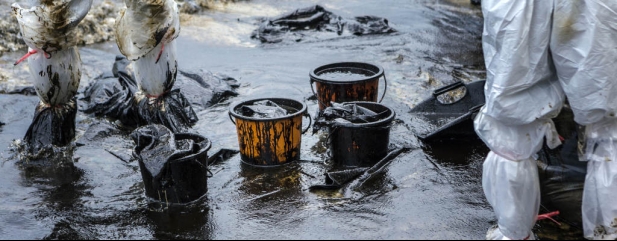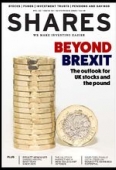Archived article
Please note that tax, investment, pension and ISA rules can change and the information and any views contained in this article may now be inaccurate.
Key points to understand about ethical investments

It’s impossible to ignore the tremendous attention to environmental matters that has emerged across the globe in recent years.
Campaigners and activists have put green credentials on the priority list for most politicians, with Boris Johnson recently reinforcing his pledge to make the UK greener with £160 million of investment in wind energy.
The Covid-19 crisis may have overshadowed the activities of Greta Thunberg and co, but it’s also underlined the economic damage that can stem from mishandling environmental issues.
This looks to have spurred retail investors to plough money into responsible funds this year, which saw £2.5 billion of inflows in the second quarter. That compares with just £0.8 billion in the same period last year. However, less than £3 in every £100 invested in UK-based retail funds is held in the ethical sector though, which means there’s still plenty of scope to attract new eyeballs.
E, S AND G
Environmentally sound credentials are typically one of three main qualities responsible funds seek when choosing companies in which to invest.
They will also look for companies that are making a positive contribution to human society, for instance by improving public health.
The third plank of the standard ESG approach is robust governance, where failings have resulted in scandals like the BP Gulf of Mexico oil spill, and more recently the Volkswagen emissions scandal.
POSITIVE AND NEGATIVE SCREENING
Responsible funds come in many different shapes and sizes, but there are broadly two different approaches which fund managers adopt.
Some funds like Aegon Ethical Equity (0745088) screen out investments which they view as ESG transgressors. Typical examples of companies excluded from such funds would be tobacco companies, arms manufacturers and fossil fuels. This approach is often referred to as negative screening.
The second approach, taken by funds like Liontrust Sustainable Future Growth (3002876), seeks to invest in companies which are actively making a positive contribution to a range of ESG themes such as improvements in energy efficiency or providing affordable healthcare. In the industry this process is called positive screening.
TRACKERS AND SPECIALIST INVESTMENTS
Traditional tracker funds don’t have any ESG screens and simply allocate money to stocks in an index passively.
If Royal Dutch Shell (RSDB) is 5% of the index, a FTSE 100 tracker is simply going to place £5 out of every £100 invested into Shell stock.
Fund management groups that run tracker funds can take an activist approach to engaging with companies on ESG matters, but they lack the final sanction of upping sticks with their money.
There are some funds which track specific ESG indices, produced by the likes of FTSE and MSCI. Much like with an active fund, investors should check the ethical criteria to make sure investment is aligned with their own goals – this time it’s the composition of the index they need to look at, which the fund simply mirrors.
More specialised funds can provide purer exposure to specific themes investors may want to get behind. For instance, the names of the iShares Global Clean Energy ETF (INRG) and Greencoat UK Wind (UKW) speak for themselves. Clearly the more specialised the theme, the less diversified the portfolio, and the more risk investors must be willing to accept.
WILL ETHICAL FUNDS OUTPERFORM?
There have been no definitive studies which show that responsible funds are bound to outperform traditional funds, or vice versa.
In any case looking in the rear view mirror isn’t going to be a good guide to the future, seeing as the increasing scrutiny of ESG qualities means we could see more and more investment flowing to those companies doing the right thing, thereby boosting share prices.
Traditional funds are also paying more attention to ESG matters as part of their investment process.
Based on current trends, the end state for ESG metrics is probably a pocket in the bag of tools used by fund managers to evaluate investments, alongside valuation ratios, earnings growth and balance sheet strength, among others. That means even funds which aren’t for dedicated ethical investors may end up benefiting from any ESG tailwinds.
THE RISKS OF INVESTING RESPONSIBLY
While the jury is therefore out on the matter of performance, the question of risk is more clear-cut.
Responsible funds will look very different to the main indices of the markets in which they are investing. This isn’t necessarily a bad thing, in fact it’s the cornerstone of high conviction active management, but it does mean that investors need to be willing to tolerate significant periods of underperformance relative to the index.
Responsible investors should also be alert to concentration risk, as a purely ethical portfolio may leave them heavily exposed to specific areas, such as smaller companies and emerging technologies. A pragmatic way to mitigate this problem is to combine responsible funds with traditional funds, to produce a more diversified portfolio.
Clearly this is a halfway house which will undermine the point of investing ethically for some investors. But for those who have responded to the threat of climate change by reducing meat consumption or foreign holidays, without eliminating them entirely, compromise will be a more familiar road to tread. Sometimes it’s important not to let the perfect be the enemy of the good.
FUTURE OF RESPONSIBLE INVESTING
For many years the dial didn’t really twitch on the amount of retail money invested ethically. Time will tell whether 2020 is a blip or the start of a more sustained trend.
In a world where BP (BP.) has promised to reduce carbon emissions to net zero by 2050, and the cigarette manufacturer Phillip Morris has committed to delivering a smoke-free future, there’s evidence that pressure is already beginning to bear fruit.
DISCLAIMER
Editor Daniel Coatsworth owns shares in iShares Global Clean Energy ETF
Important information:
These articles are provided by Shares magazine which is published by AJ Bell Media, a part of AJ Bell. Shares is not written by AJ Bell.
Shares is provided for your general information and use and is not a personal recommendation to invest. It is not intended to be relied upon by you in making or not making any investment decisions. The investments referred to in these articles will not be suitable for all investors. If in doubt please seek appropriate independent financial advice.
Investors acting on the information in these articles do so at their own risk and AJ Bell Media and its staff do not accept liability for losses suffered by investors as a result of their investment decisions.
Issue contents
Feature
First-time Investor
Great Ideas
- The UK stock market has a new gold giant in town
- More to come from Touchstone despite doubling in price since the summer
- Very large earnings upgrades for Kainos
- Luceco knocks the lights out
- Ford shares start to motor after impressive third quarter trading
- This trust offers big potential if you believe value investing will thrive

 magazine
magazine











